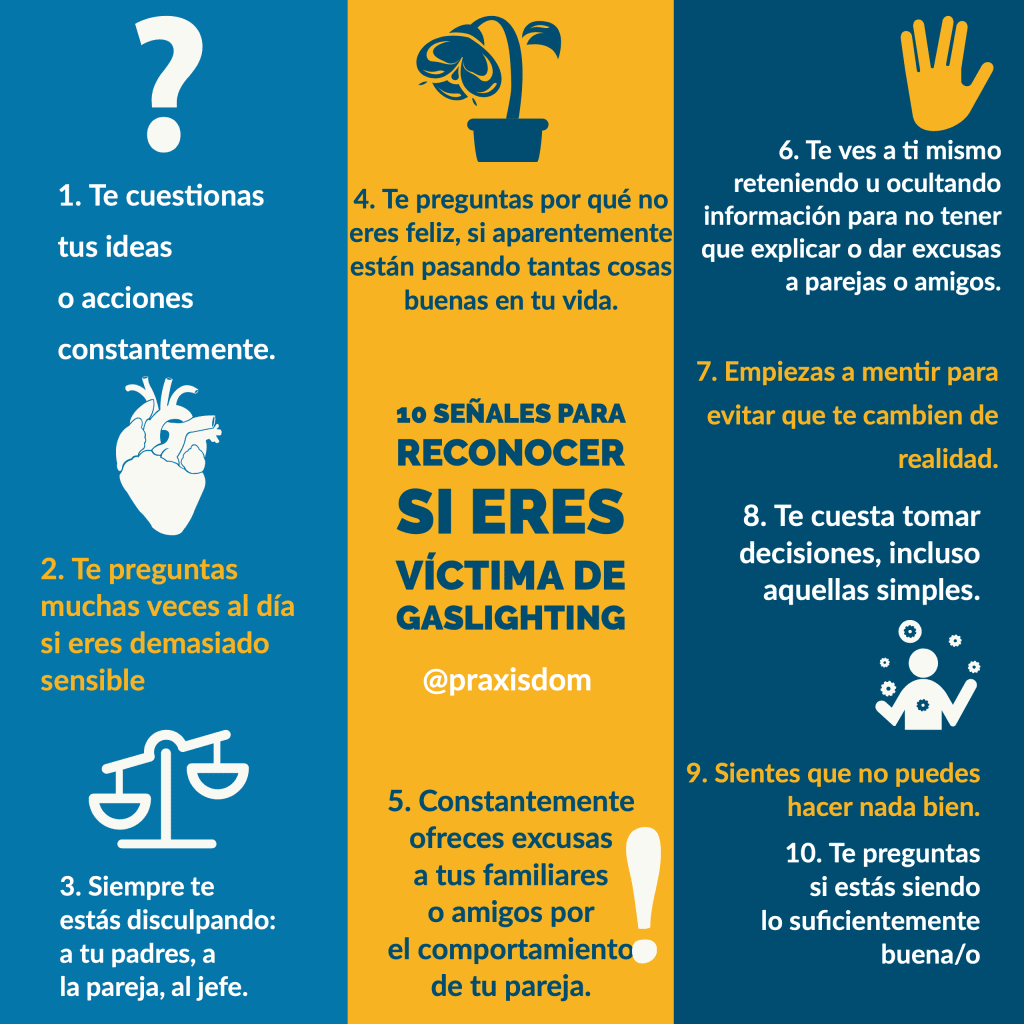
How do we identify abuse that leaves no physical marks? 24-06-2019
By: Katherine Langa
A common type of emotional abuse but, little known, is gaslighting. In this case, the victim of the abuse is manipulated in such a way that they becomes doubtful of themself, of their perception, interpretation and experiences. It can reach the point where the victim questions even their own sanity and judgment.
It deeply hurts the victim's self-esteem by making them believe that they are always wrong or do things wrong, as if they were the abuser. It is not enough just to make the victim doubt what they say or feel, but it also generates feelings of guilt. Phrases such as: "you are too sensitive", "you exaggerate", "that was not what I said, you are crazy", "you saw wrong, that was not what happened", in addition to being disabling, these are examples of gaslighting.
In her book "The Gaslighting Effect" psychologist Robin Stern mentions 10 signs to recognize if you are a victim of gaslighting:
- You constantly question your ideas or actions.
- You wonder if you are too sensitive many times a day.
- You are always apologizing: to your parents, to the partner, to the boss.
- You wonder why you are not happy, if apparently so many good things are happening in your life.
- You constantly make excuses to your family or friends for your partner's behavior.
- You see yourself withholding or hiding information so you don't have to explain or give excuses to couples or friends.
- You start lying to prevent your reality from being changed.
- You have a hard time making decisions, even simple ones.
- You feel like you can't do anything right.
- You constantly wonder if you are being a good enough daughter/friend/employee/boyfriend/boyfriend.
It is important that you trust yourself, and validate your experiences. If you have doubts about how to handle it, I invite you to discuss it in therapy.


